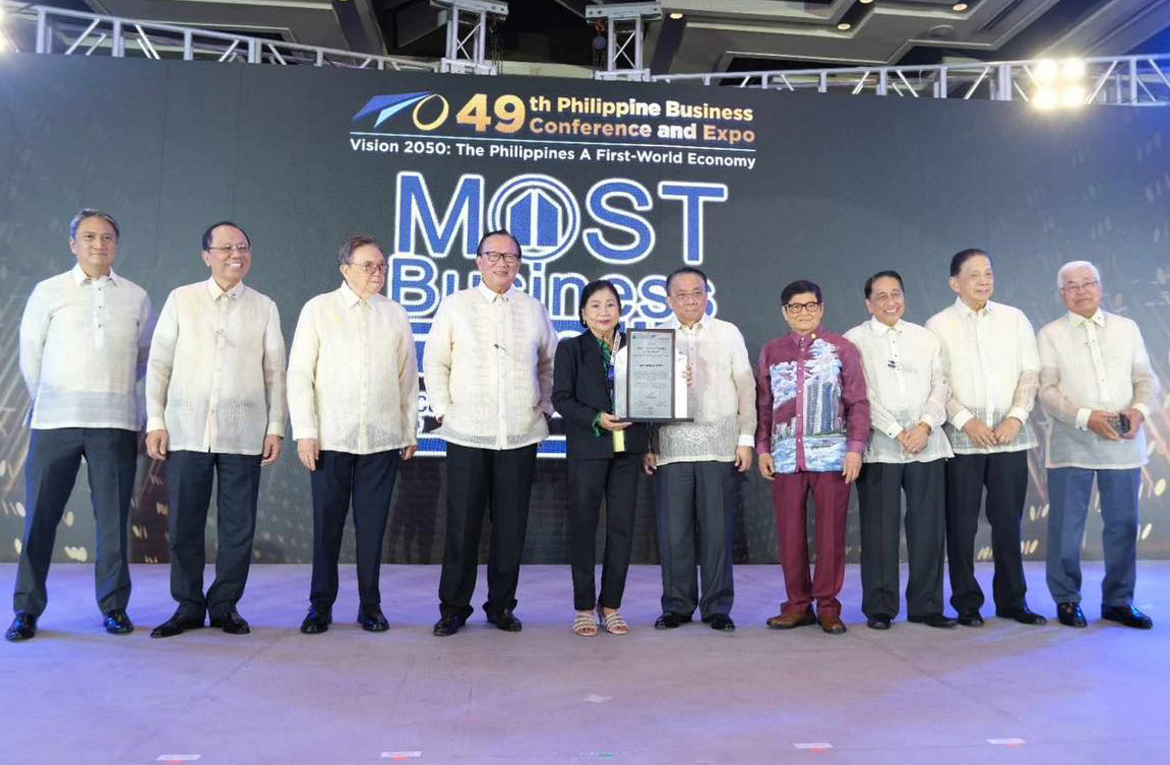Antipolo City was named the Most Business-Friendly Component City in the Philippines during the 49th Philippine Business Conference and Expo “Vision 2050: the Philippines A First-World Economy” organized by the Philippine Chamber of Commerce and Industry held at the Manila Hotel.
Antipolo City Vice Mayor Josefina Gatlabayan received the award in behalf of Mayor Jun Ynares.
PCCI Antipolo officers – President Oliver Darvin, Executive Vice President Bryant Kim An and Treasurer Cynthia Verdera-Vidal – joined the two-day business conference.
PCCI is a non-government business organization of small, medium, and large enterprises, local chambers, and industry associations representing various sectors of business, working together to improve the viability of businesses in the community and improve the Philippine economy.
The 49th PBC is the country’s largest annual business gathering where PCCI joined the call of legislators for an urgent need to fix the country’s deteriorating public education system, otherwise the demographic advantage will become a liability and imperil Vision 2050 for a first world Philippines.
This proposition was stressed during the two-day PBC where Senator Sherwin T. Gatchalian, co-chair of the Second Congressional Education Commission, discussed “Shaping the minds and skills of the future leaders and workforce” in the Education Plenary.
George T. Barcelon, president of PCCI agreed with Gatchalian on the need to “fix the country’s public education system.”
Barcelon also said free state university education should be reserved to students who are taking up courses that the country needs the most, like engineering, math and sciences. “We should put resources where there is biggest effect,” he said.
Meantime, Gatchalian lamented the country’s dismal performance in global education standing, the quality of the K to 12 graduates, and their employment status.
“To become a first world country by 2050, this (education) is something that we all have been working together and then hopefully give our next generation a better future compared to ours. However, we cannot reach that first world status without addressing basic concerns and basic issues, surrounding education, particularly basic education because that’s where the foundation begins. And I believe that to fix our country we have to fix our public schools,” Gatchalian said.
The Senator said 86 percent of Filipino students go to public schools and that eight out of 10 who will work in corporations in the next businesses will come from public schools. “So, it’s important to address the concerns of our public schools,” he added.
The K to 12 program is designed to also address the supply of local workforce to domestic businesses according to Gatchalian. The K to 12 aims not just to have senior high school students to be college ready but that senior high graduates are work ready. Meaning they can work immediately in current corporations, and they are ready to venture into entrepreneurship if they want to.
However, he said, the senior high school students who go into the various tracks, 71 percent went into the academic track meaning they will proceed to college and about 30 percent of students go into technical or vocational courses.
